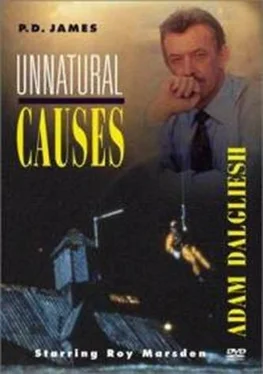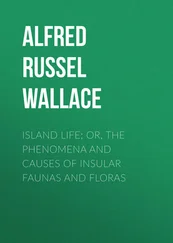P James - Unnatural Causes
Здесь есть возможность читать онлайн «P James - Unnatural Causes» весь текст электронной книги совершенно бесплатно (целиком полную версию без сокращений). В некоторых случаях можно слушать аудио, скачать через торрент в формате fb2 и присутствует краткое содержание. Жанр: Детектив, на английском языке. Описание произведения, (предисловие) а так же отзывы посетителей доступны на портале библиотеки ЛибКат.
- Название:Unnatural Causes
- Автор:
- Жанр:
- Год:неизвестен
- ISBN:нет данных
- Рейтинг книги:4 / 5. Голосов: 1
-
Избранное:Добавить в избранное
- Отзывы:
-
Ваша оценка:
- 80
- 1
- 2
- 3
- 4
- 5
Unnatural Causes: краткое содержание, описание и аннотация
Предлагаем к чтению аннотацию, описание, краткое содержание или предисловие (зависит от того, что написал сам автор книги «Unnatural Causes»). Если вы не нашли необходимую информацию о книге — напишите в комментариях, мы постараемся отыскать её.
Unnatural Causes — читать онлайн бесплатно полную книгу (весь текст) целиком
Ниже представлен текст книги, разбитый по страницам. Система сохранения места последней прочитанной страницы, позволяет с удобством читать онлайн бесплатно книгу «Unnatural Causes», без необходимости каждый раз заново искать на чём Вы остановились. Поставьте закладку, и сможете в любой момент перейти на страницу, на которой закончили чтение.
Интервал:
Закладка:
Digby Seton’s cottage was the only one completed and the decor was depressingly orthodox. It had an orange door with a brass knocker in the shape of a mermaid, window boxes at the two minute square windows and a lamp in a wrought-iron holder above the lintel. The lamp wasn’t alight but this was hardly surprising since, as far as Dalgliesh could see, it wasn’t connected to the power. It struck him as being coy without being attractive and vulgar without being functional; in this it was symbolic of the whole house. The orange window boxes were sagging with their weight of caked earth. They had been planted with chrysanthemums and, when fresh, their gaiety had no doubt justified another two guineas on the rent. But the flowers, once golden, were now faded and brittle, and the dead leaves stank of decay.
He prowled around the cobbled yard shining his pocket torch into the dark eyes of the windows. The two adjoining garages with the rooms above were now being modernised. The interiors had been completely stripped and the double garage doors taken off so that he could step inside the shell and note with interest that there was to be a connecting door between the sitting room and the garage. Everywhere there was a smell of new timber, paint and brick dust. The district had a long way to go, of course, before it became socially acceptable let alone fashionable, but it was on the way up. Digby had merely been the first to sniff the returning tide.
And that, of course, led to the intriguing question of why exactly he had come here. It wasn’t an unlikely house for him to choose. In many ways this squalid little status symbol was entirely appropriate to Digby. But wasn’t it altogether too much of a coincidence that he had chosen a house so convenient for murder? It was within twenty minutes’ walk of where Maurice Seton had been put down; it was in a dark, inconspicuous yard which, once the workmen had left, would be uninhabited except for Digby; it had a garage with a direct door into the house itself. And there was another fact, perhaps the most significant of all. Digby Seton had only recently moved and he hadn’t given his new address to anyone at Monksmere. When she had wanted to contact him after Maurice’s death Sylvia Kedge hadn’t known where to find him. And this meant that Maurice, if indeed he had been sent to Carrington Mews by Lily Coombs, wouldn’t have known that it was Digby who was waiting for him. Certainly, Maurice had gone from the Cortez Club to his death. And Digby was the only suspect who was connected with the club.
But all this was no more than suspicion. Nowhere was there any proof. There was no evidence that Lil had directed Maurice here; even if she had, Lil was capable of an obstinate adherence to a good story that would have been commendable in a better cause. It would need stronger measures than any English police force would tolerate to persuade Lil to talk. There was no proof that Maurice had been in the Mews. Dalgliesh couldn’t get into the locked cottage but Reckless or his men would have been over it; if there had been anything to find they would have found it. There wasn’t even any proof that Maurice had been murdered. Reckless didn’t believe it, the Chief Constable didn’t believe it and probably no one else did except Adam Dalgliesh, stupidly persistent, blindly following his hunch in the teeth of the evidence. And, if Maurice had been murdered, the biggest problem remained. He had died at midnight when Digby Seton, and indeed most of the other suspects, had an unbreakable alibi. Until one could discover the “how” it was pointless to concentrate on the “who.”
Dalgliesh shone his torch for the last time round the deserted yard, over the stacked timber under its tarpaulin cover, the piles of new bricks, the garage doors with their peeling notices. Then he passed under the arch as silently as he had entered and made his way to Lexington Street and his car.
It was just outside Ipswich that the tiredness hit him and he knew that it wouldn’t be safe to drive much farther. He needed food. It had been a long time since his substantial lunch with Max and he had eaten nothing since. He was perfectly happy to spend the night in a lay-by but not to wake in the early hours with a gnawing hunger and no chance of an early breakfast. But the problem was that it was too late for a pub and he had no intention of stopping at a country club or small hotel to do battle with the proprietor’s fixed determination to serve meals only at regulated hours and at a price and quality to deter all but the starving. After a mile or two, however, he found an all-night transport café, advertised by the black phalanx of lorries parked around its doors and the blaze of light from its low windows. The place was full, the air thick with smoke and jangling with talk and the cacophony of the jukebox, but he sat undisturbed at a corner table, bare-topped but clean, and was served with a plate of eggs, sausages and crisply fried chips and a pint mug of hot, sweet tea.
Afterwards he went in search of the telephone, inconveniently placed in a narrow passage between the kitchen and the parking yard, and put through a call to Pentlands. There was no need to telephone. His aunt wasn’t expecting him back at any particular time. But he was suddenly uneasy about her and determined if there were no reply to drive on. He told himself that it was an irrational anxiety. She might well be dining at Priory House or even be taking a solitary walk along the beach. He had discovered nothing to suggest that she was in any danger, but still there was this sense that all was not well. It was probably only the result of weariness and frustration, but he had to know.
It seemed an unusually long time before she answered and he heard the quiet, familiar voice. If she was surprised at his call she didn’t say so. They spoke briefly against the clatter of washing-up and the roar of departing lorries. When he replaced the receiver he felt happier but still uneasy. She had promised him to bolt the cottage door tonight-thank God she wasn’t the woman to argue, question or laugh over a simple request-and he could do no more. He was half-irritated by this worry which he knew to be unreasonable; otherwise, whatever his tiredness, he would have to drive on.
Before leaving the telephone booth a thought struck him and he searched in his pocket for a further supply of coins. It took longer to get through this time and the line wasn’t clear. But eventually he heard Plant’s voice and asked his question. Yes, Mr. Dalgliesh was quite right. Plant had telephoned Seton House on Wednesday night. He was sorry that he hadn’t thought to mention it. Actually he had been phoning about every three hours that evening in the hope of getting Mr. Seton. About what time? Well, as far as he could remember at about six, nine and twelve o’clock. Not at all. Plant was only too glad to have been of help.
Was it any help, Dalgliesh wondered. It proved nothing except that Plant’s unanswered call could have been the ringing telephone heard by Elizabeth Marley when she left Digby at Seton House. The time was about right and Reckless hadn’t been able to trace the other call. But that didn’t mean that no one had made it. He would need stronger evidence than this to prove Digby Seton a liar.
Ten minutes later Dalgliesh parked under the shelter of the hedge at the next lay-by and settled himself in the car as comfortably as was possible for a man of his height. Despite the pint of tea and the indigestible supper sleep came almost immediately and for a few hours it was deep and dreamless. He was awoken by a spatter of gravel against the car windows and the high keening of the wind. His watch showed three-fifteen. A gale was blowing and, even in the shelter of the hedge, the car was rocking gently. The clouds were scudding across the moon like black furies and the high branches of the hedge, dark against the sky, were groaning and curtseying like a chorus row of demented witches. He eased himself out of the car and took a short walk down the deserted road. Leaning against a gate he gazed out over the dark, flat fields, taking the force of the wind full in his face so that it was difficult to breathe. He felt as he had as a boy on one of his solitary cycling trips when he would leave his small tent to walk in the night. It had been one of his greatest pleasures, this sense of complete loneliness, of being not only without a companion but with the knowledge that no one in the world knew exactly where he was. It was a solitude of spirit as well as of the body. Shutting his eyes and smelling the rich dampness of grass and earth, he could imagine himself back in childhood, the smells were the same, the night was familiar, the pleasure was as keen.
Читать дальшеИнтервал:
Закладка:
Похожие книги на «Unnatural Causes»
Представляем Вашему вниманию похожие книги на «Unnatural Causes» списком для выбора. Мы отобрали схожую по названию и смыслу литературу в надежде предоставить читателям больше вариантов отыскать новые, интересные, ещё непрочитанные произведения.
Обсуждение, отзывы о книге «Unnatural Causes» и просто собственные мнения читателей. Оставьте ваши комментарии, напишите, что Вы думаете о произведении, его смысле или главных героях. Укажите что конкретно понравилось, а что нет, и почему Вы так считаете.












